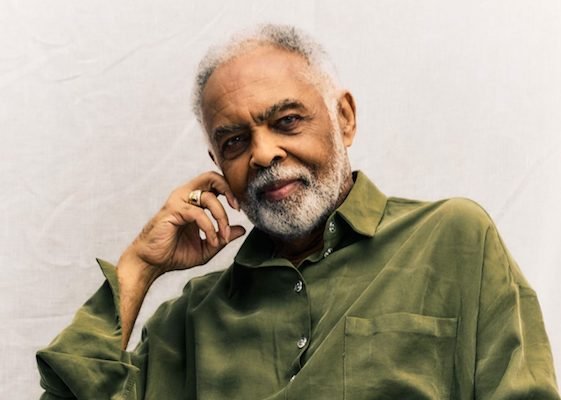Gilberto Gil, a revered figure in Brazilian music, rendered a deeply sentimental farewell to London, reflecting not only on his illustrious career but also on a past marred and enriched by exile, political upheaval, and cultural synthesis. The performance, awash with both vibrant and melancholy tunes, unfolded at the Royal Albert Hall and saw the 81-year-old musician travel through time, rekindling memories of a period when London provided solace from the turbulence in his homeland.
Gil’s journey into exile began in the turbulent era of 1969, amid the oppressive embrace of Brazil’s military dictatorship. Alongside fellow musician and close friend Caetano Veloso, Gil became a founding force behind the Tropicalia cultural movement. This innovative fusion of samba, bossa nova, African styles, and Western rock did not merely create a new musical landscape but inadvertently pitted these artists against the repressive government, marking them as subversive entities. After nine months of incarceration and faced with a dire ultimatum, Gil and Veloso chose exile over prolonged imprisonment, finding refuge in London.
In the eclectic confines of Notting Hill Gate, Gil immersed himself into the city’s vibrant life and cultural tapestry. His involvement ranged from helping organize the inaugural Glastonbury Festival to mingling and performing with other musicians, including Pink Floyd. The West Indian culture and reggae rhythms permeating his neighborhood forged a powerful influence on his music and life, intertwining with his memories and creations.
On stage, in a blue Nehru jacket, grey slacks, and sandals, Gil emanated a sprightly energy, despite his age and the now grey, once resplendent, Afro hair. He opened with “Expresso 2222”, a fan favorite, which immediately dissolved the distance between the stage and the thousands of Brazilians packing the venue, transforming the hall into a dance of collective celebration and nostalgia.
While introducing “Ladeira da Preguica,” he confessed, “This is a song I wrote in London while I was missing my homeland.” His music, while steeped in the effervescence of rhythms, often belies a profound melancholy and a longing intertwined with his experiences of exile and the emotional turmoil of being away from a homeland in distress.
The concert also glimpsed into Gil’s myriad influences and musical explorations. He rendered a reggae version of the bossa nova classic “Girl From Ipanema” and paid tribute to Bob Marley with a Portuguese rendition of “No Woman No Cry,” affirming the intercultural exchanges that have continually shaped his music.
Returning to Brazil in 1972, Gil’s career did not merely continue but soared, and he achieved global stardom while maintaining a cherished space in the hearts of his compatriots. His journey from a targeted artist to a revered cultural figure and even a political entity, serving as the culture minister from 2003 to 2008 in President Luiz Inacio Lula da Silva’s government, outlines a narrative that is as harmonious and discordant as his music.
The concert culminated in a cascade of emotions and communal celebration reminiscent of a Carnival party. The tunes of “Aquele Abraço” and “Toda Menina Baiana” enveloped the audience, elevating the atmosphere into a poignant farewell that embraced not just the musician, but the intertwined histories, struggles, and jubilations of a nation and its beloved artist.
READ MORE:
